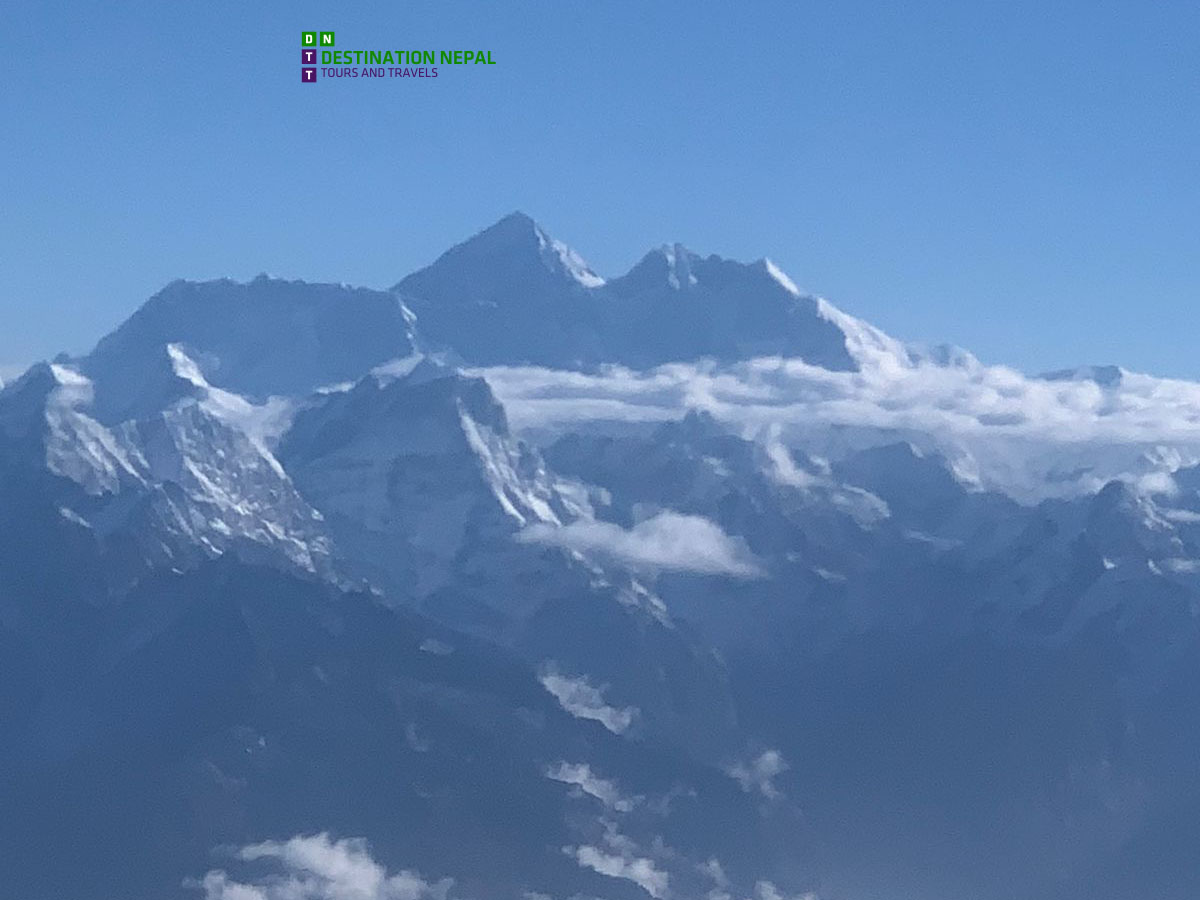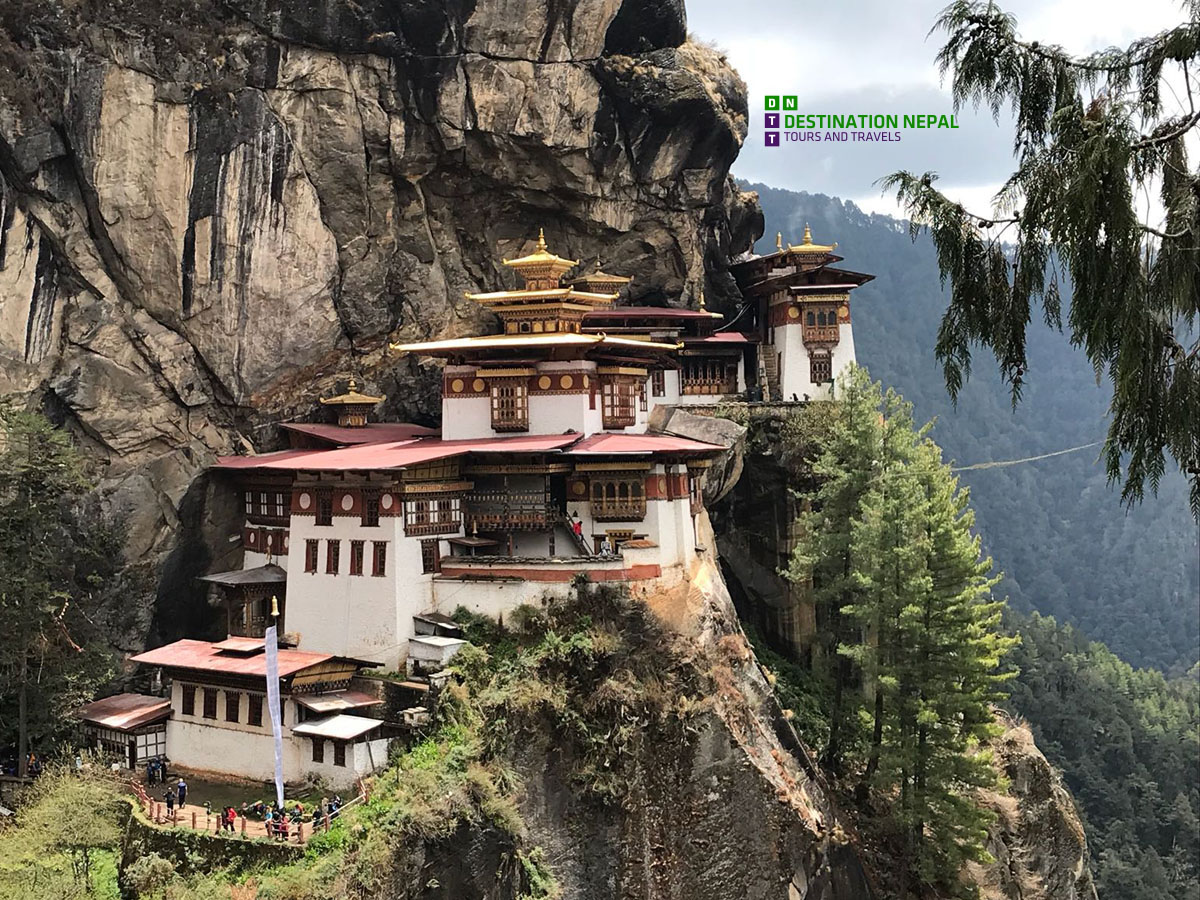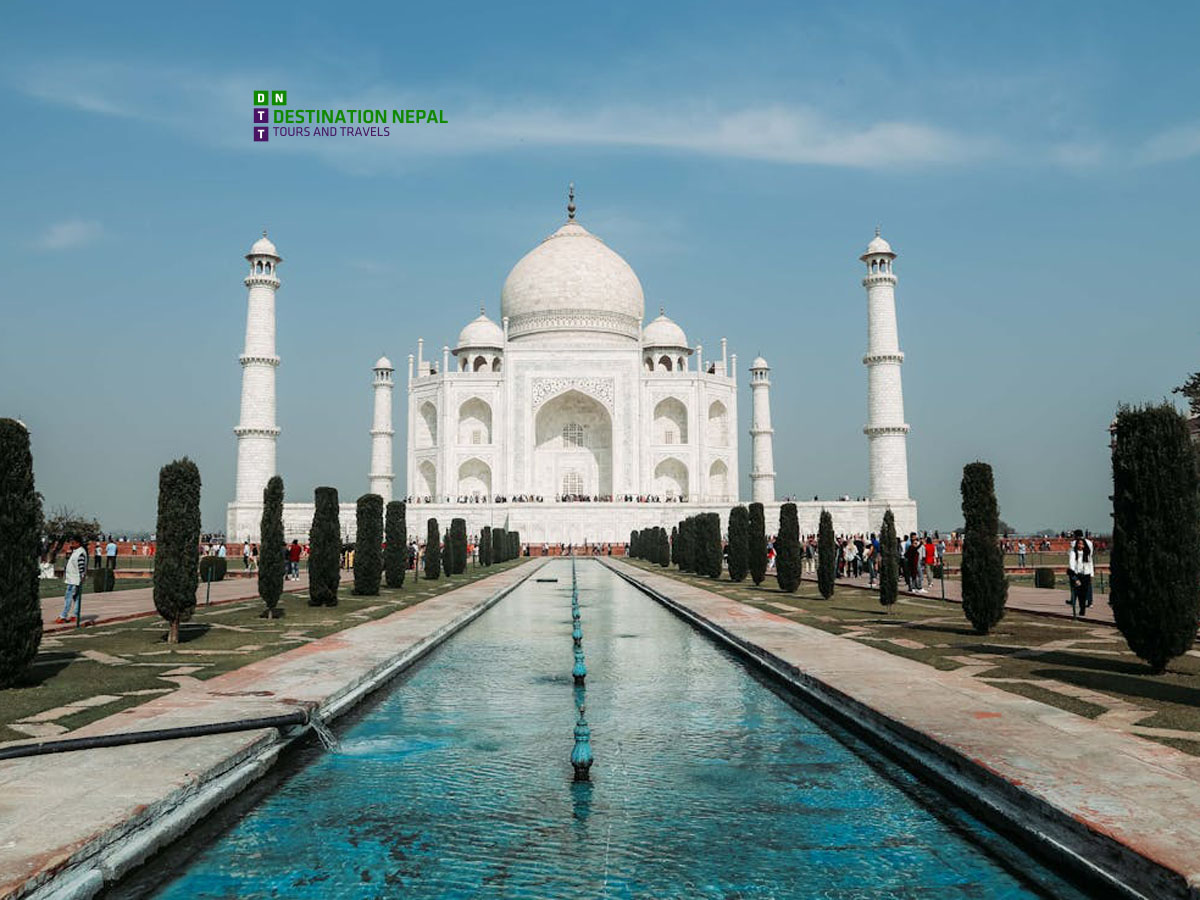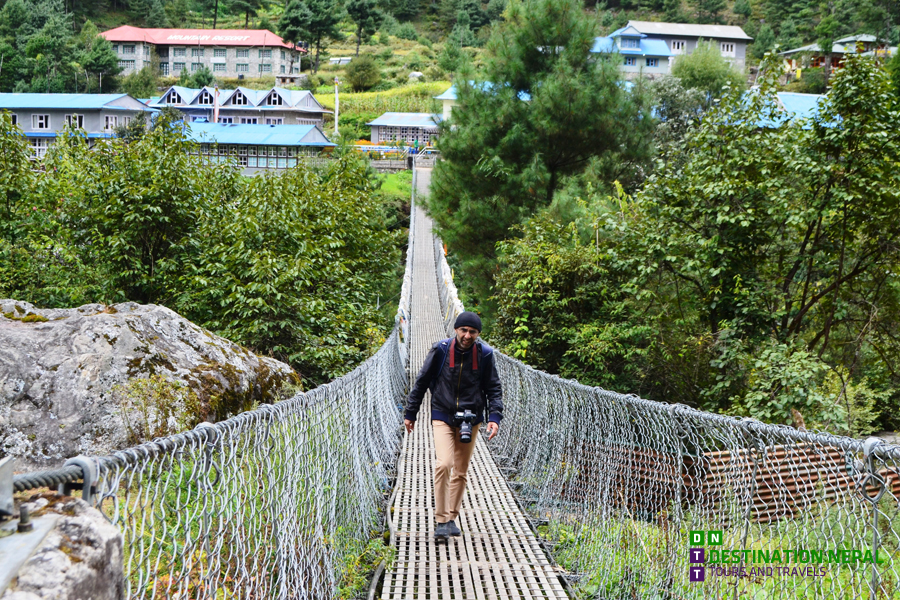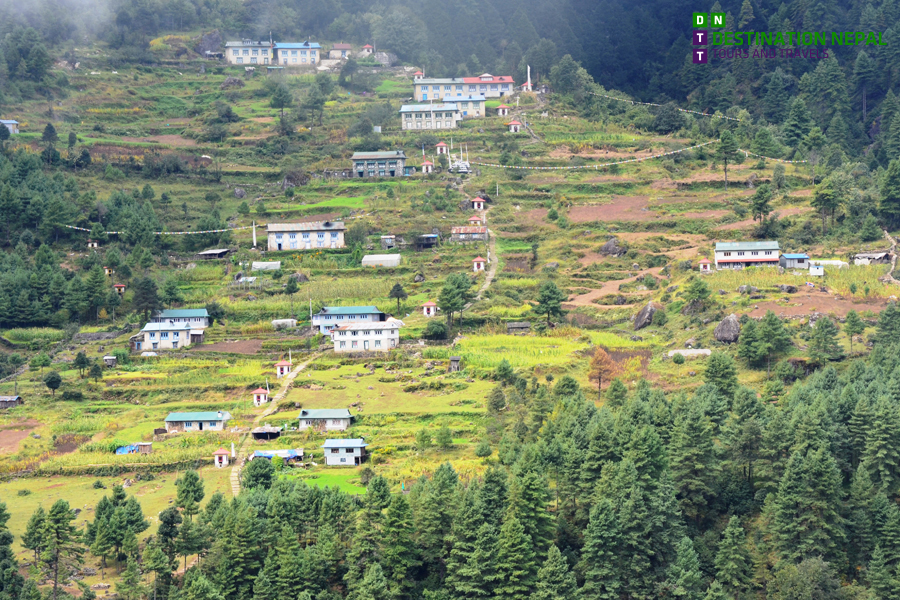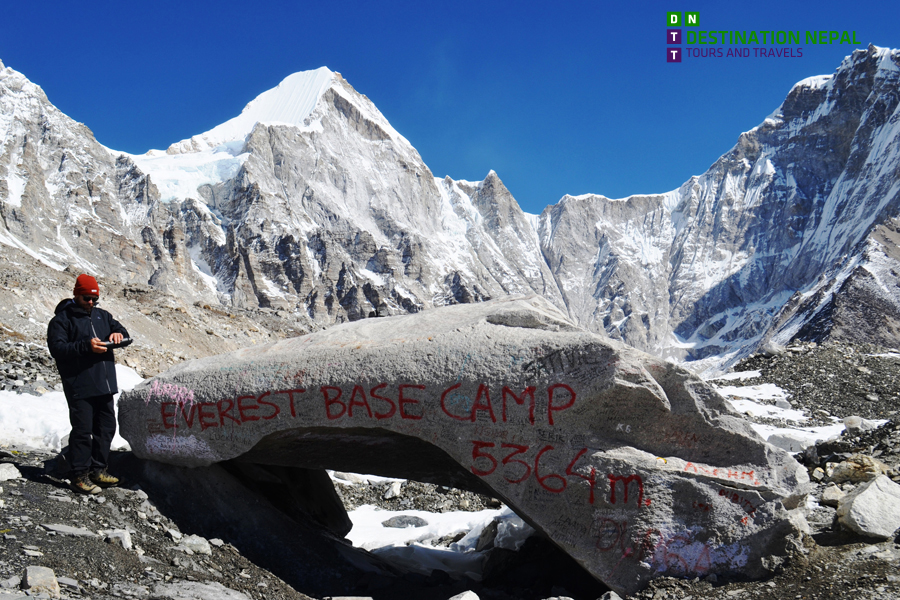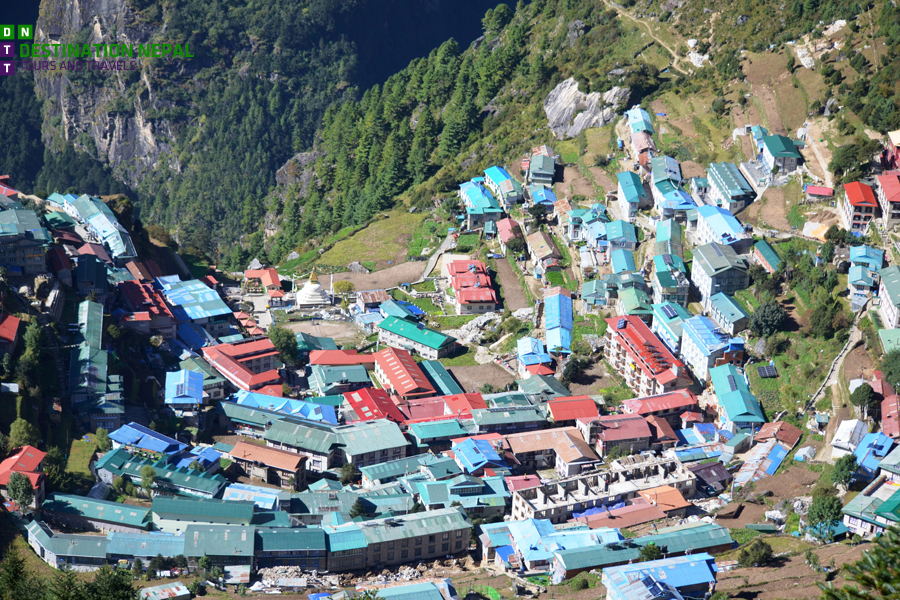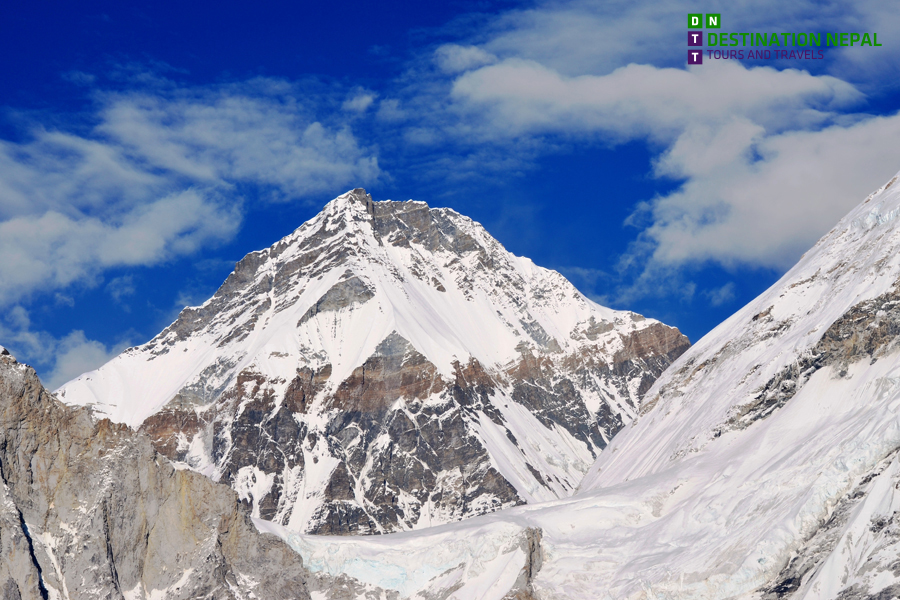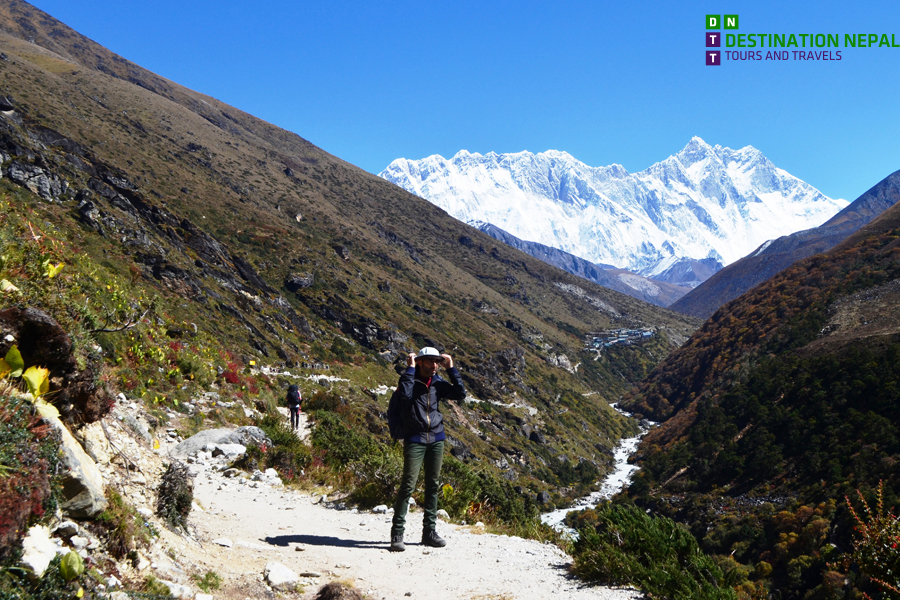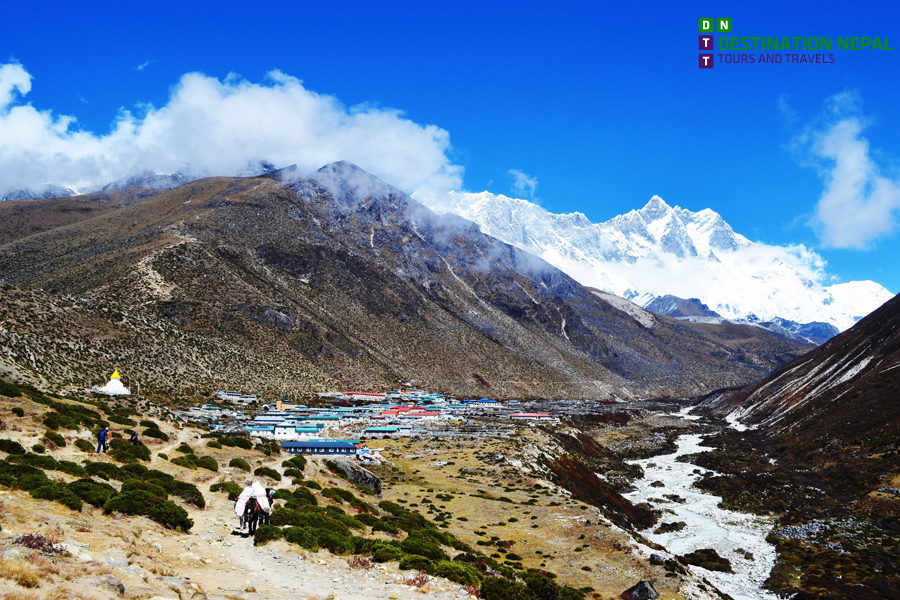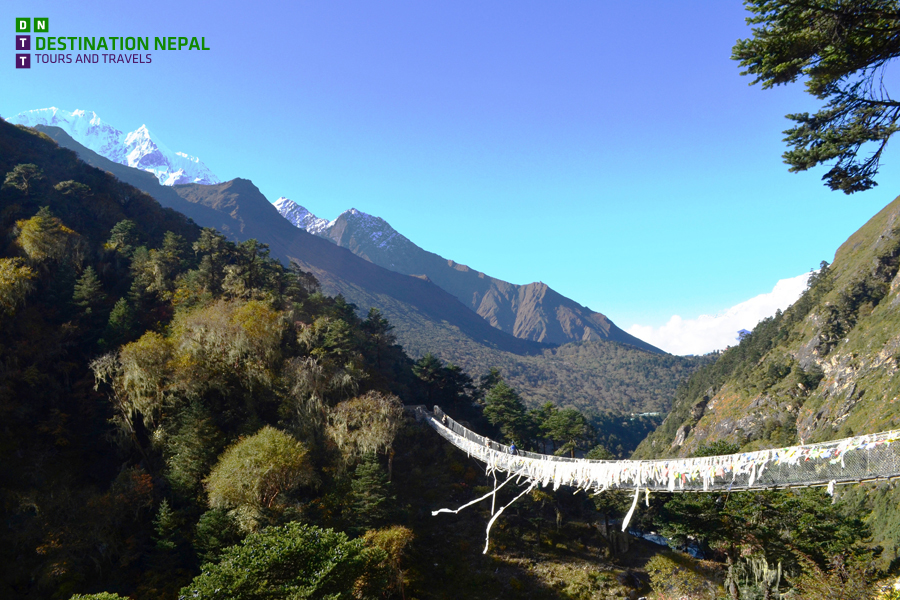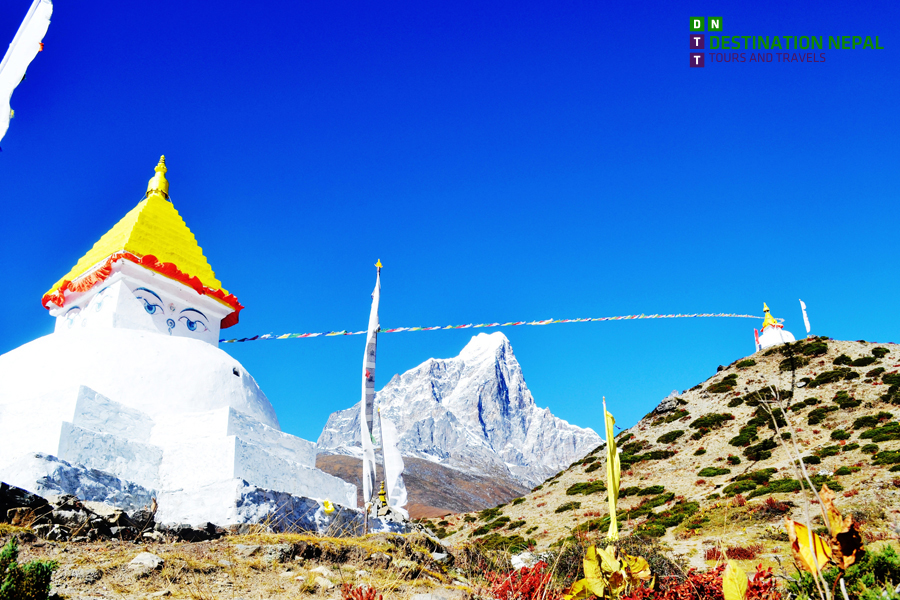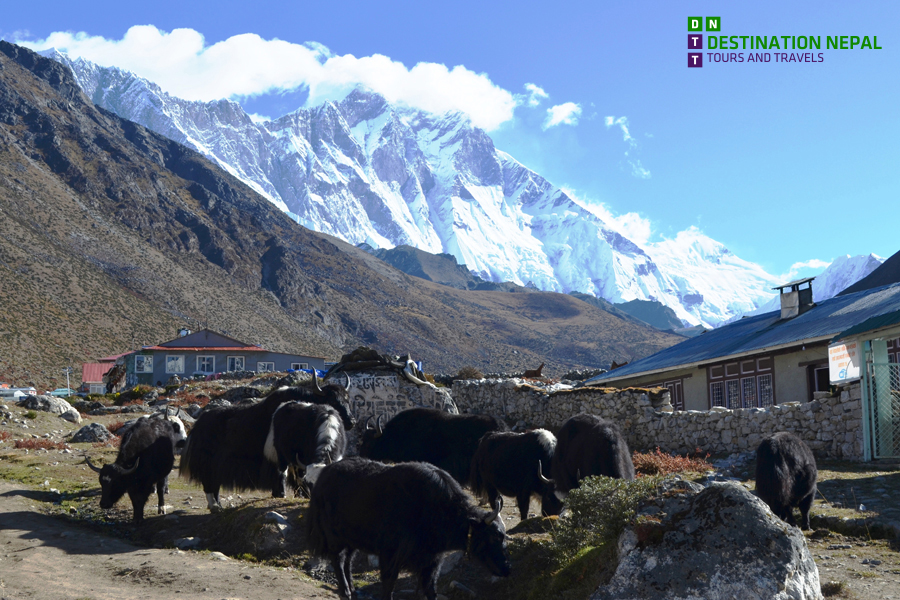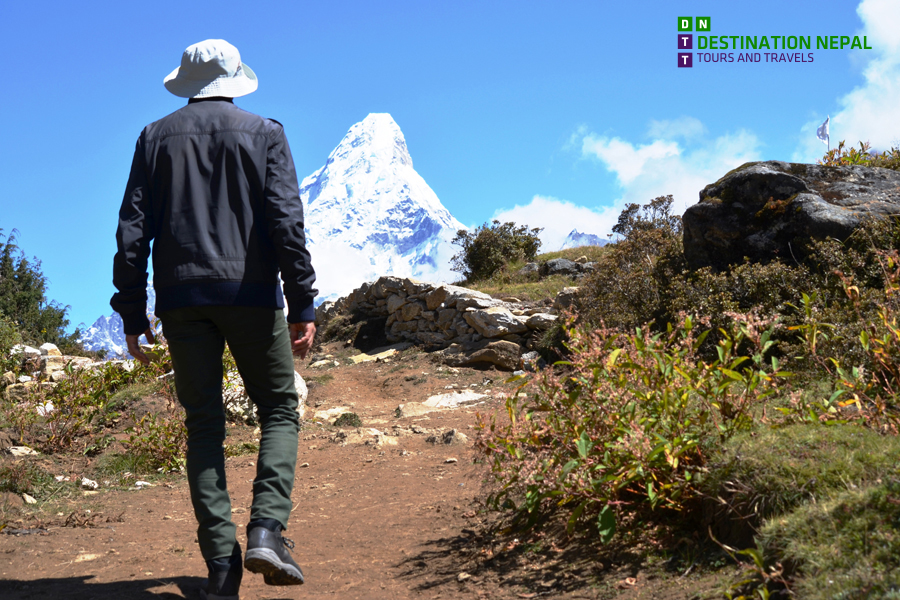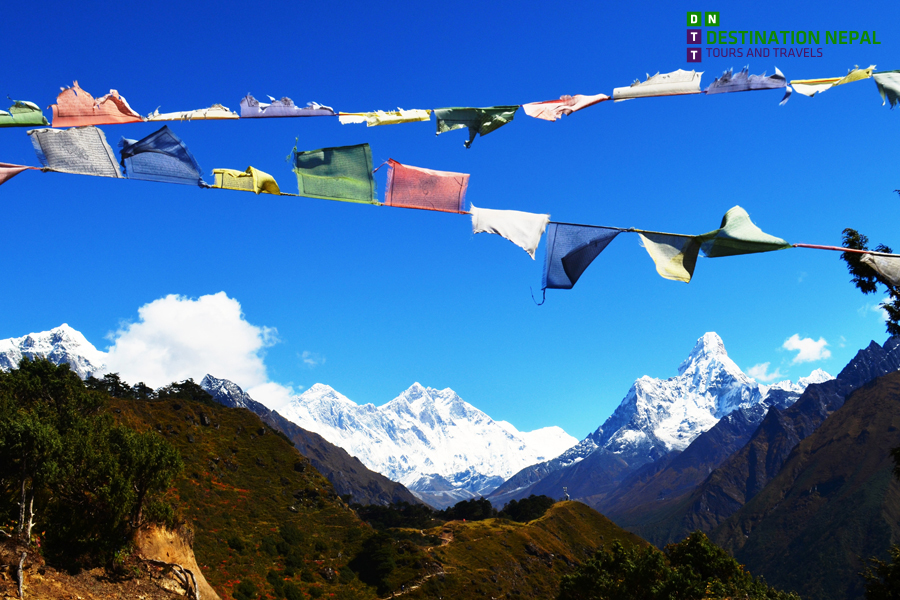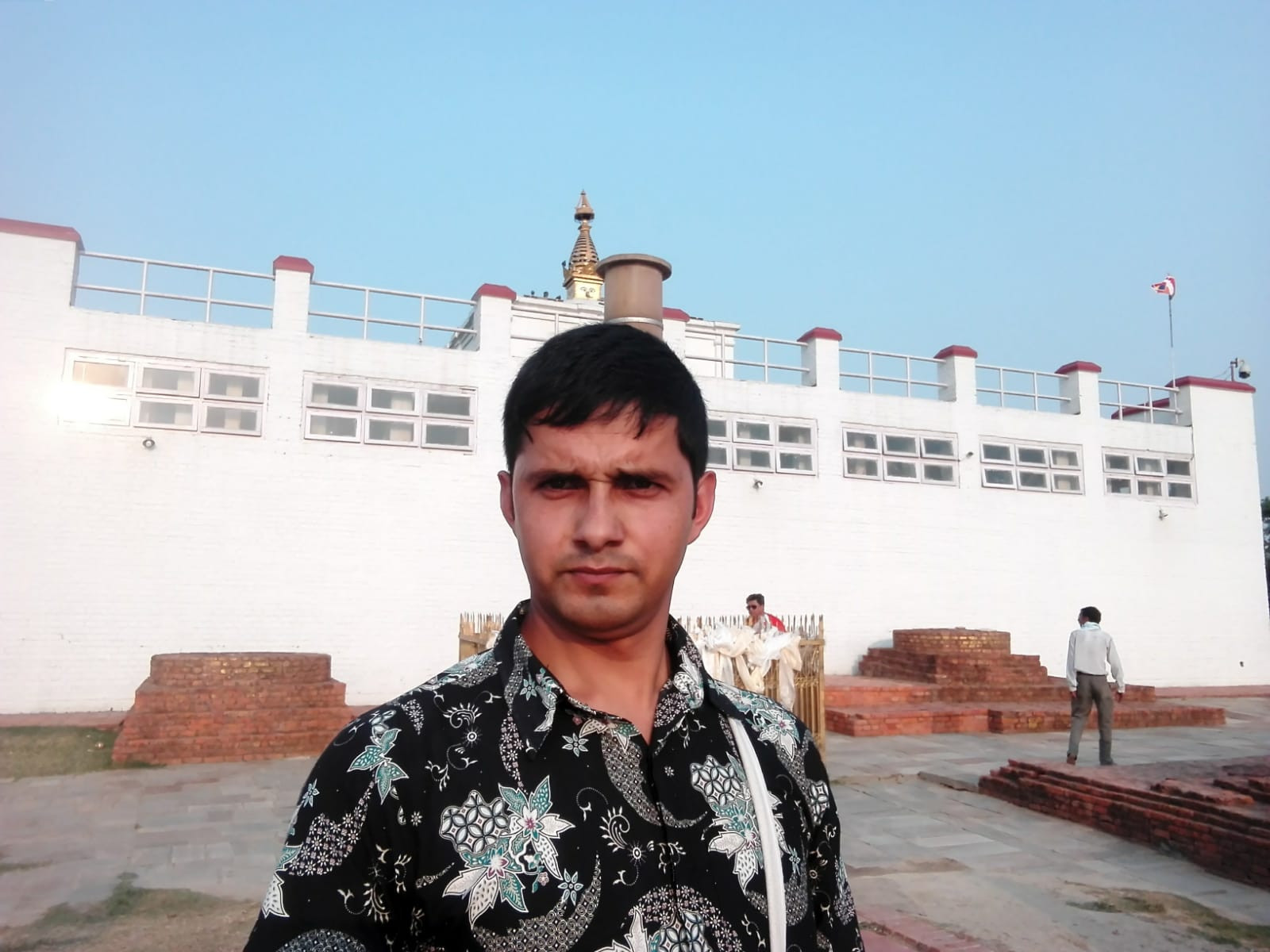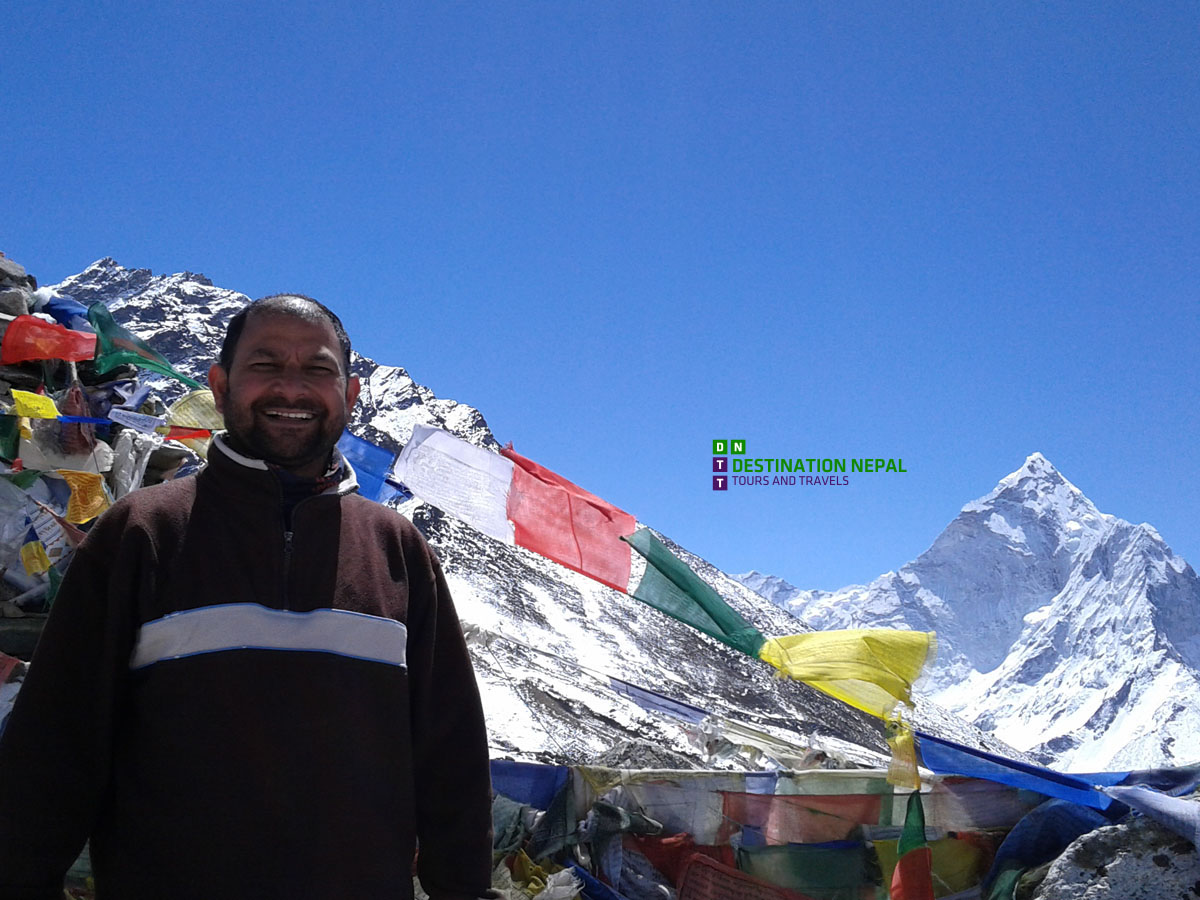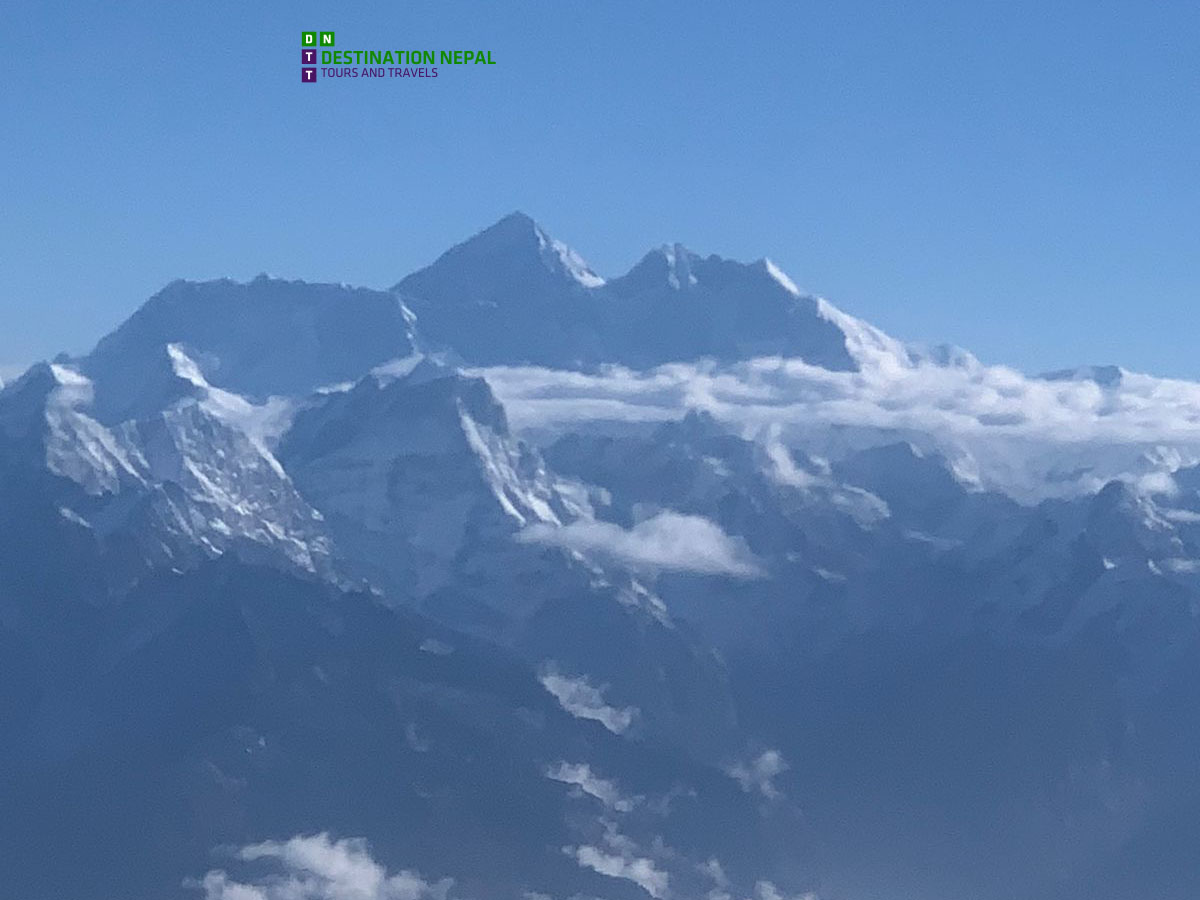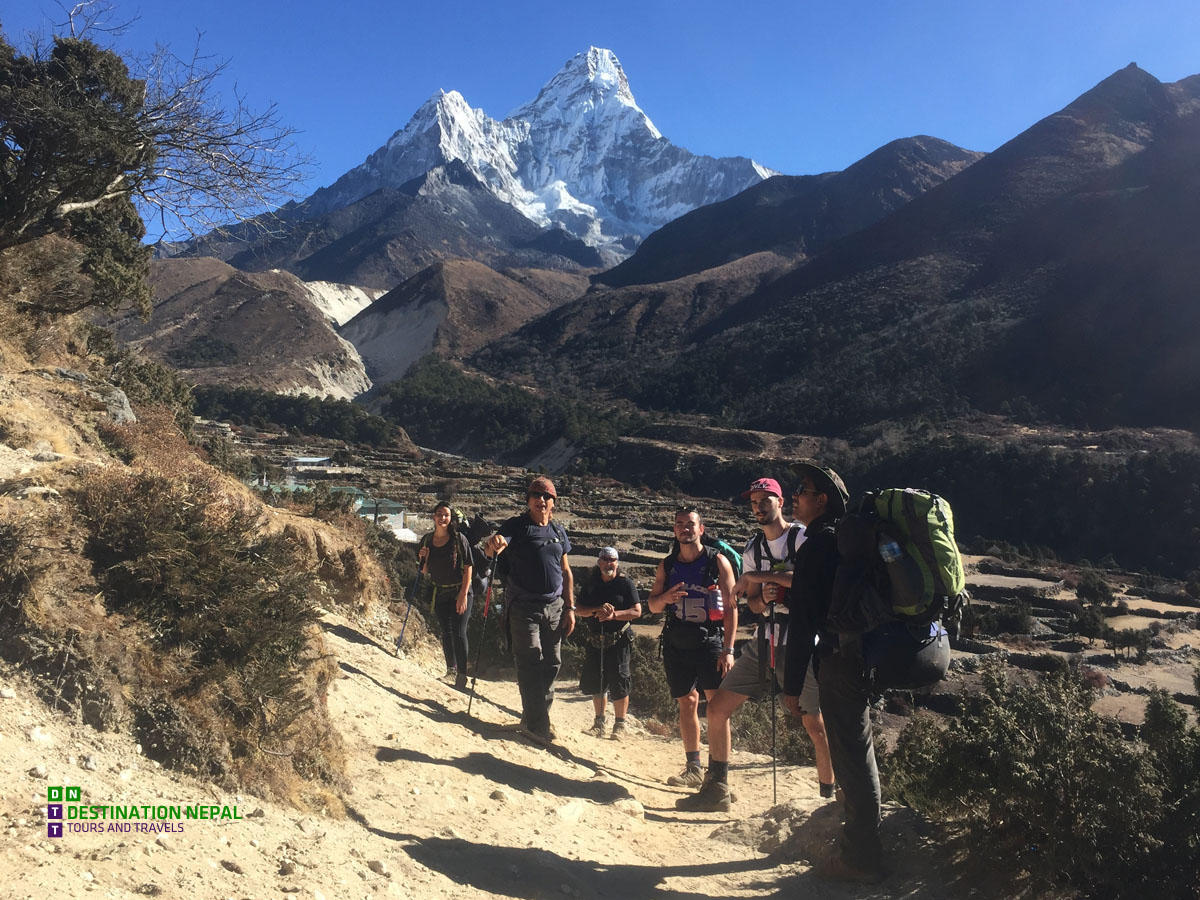Nepal
19 Days Everest Three Passes Trek









Overview
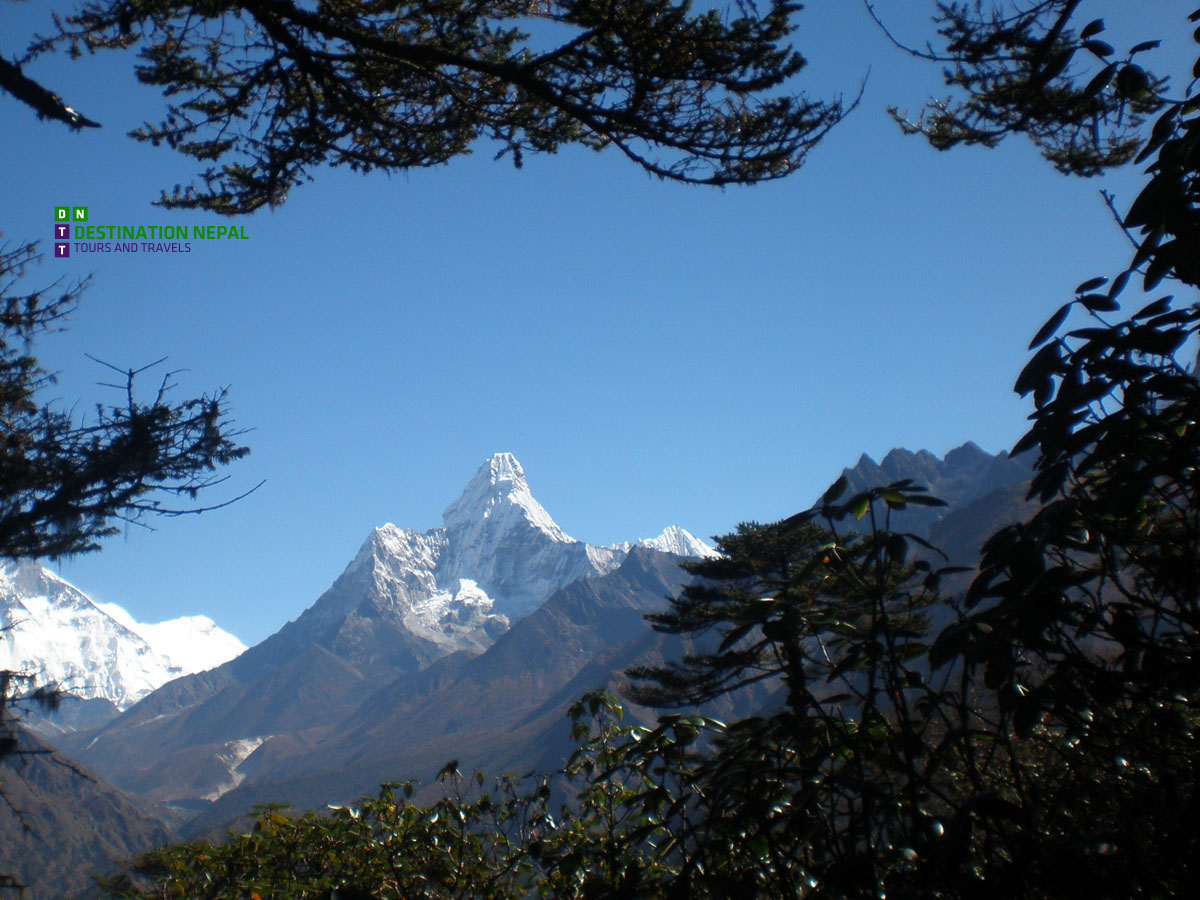 The Everest Three Passes Trek is one of the most adventurous and challenging trekking routes in the world, perfect for thrill-seekers and mountain lovers. This high-altitude trek takes you through the heart of the Himalayas, offering breathtaking views, rugged trails, and a unique cultural experience.
The Everest Three Passes Trek is one of the most adventurous and challenging trekking routes in the world, perfect for thrill-seekers and mountain lovers. This high-altitude trek takes you through the heart of the Himalayas, offering breathtaking views, rugged trails, and a unique cultural experience.
The trek features three iconic mountain passes above 5,000 meters: Kongma La Pass (5,535m), Cho La Pass (5,420m), and Renjo La Pass (5,345m). Other highlights include Kala Patthar (5,550m), Everest Base Camp (5,340m), and Gokyo Ri (5,357m). The panoramic views of towering peaks such as Mount Everest (8,848m), Lhotse (8,516m), Makalu (8,481m), and Cho Oyu (8,188m) make the trek unforgettable.
The region is home to stunning glaciers like the Khumbu Glacier and the Ngozumpa Glacier, along with serene lakes such as the Gokyo Lake System, a sacred site for Hindus and Buddhists. This trek also takes you through the Sagarmatha National Park, a UNESCO World Heritage Site, rich in biodiversity.
Apart from natural wonders, the trek provides a glimpse into Sherpa culture. You’ll encounter monasteries, prayer flags, and Mani walls that reflect the region's Buddhist traditions. Festivals celebrated by the Sherpa community add to the cultural charm of the journey.
At Destination Nepal Tours and Travels, we specialize in crafting lifetime adventures like the Everest Three Passes Trek. Whether you’re drawn by the allure of majestic mountains, the challenge of high passes, or the serenity of Himalayan landscapes, this trek has it all.
Plan your Everest Three Passes Trek with us and create memories that last forever. Contact us for more details and start your Himalayan adventure today!
Why you'll love 19 Days Everest Three Passes Trek ?
Scenic Beauty:
The trek offers stunning views of the Himalayan landscape, including majestic peaks like Everest, Lhotse, Ama Dablam, and more. The route takes trekkers through picturesque valleys, alpine meadows, and serene forests, providing an immersive experience of nature's beauty.
Adventure:
Crossing three high mountain passes—Kongma La, Cho La, and Renjo La—adds an element of adventure and challenge to the trek. It appeals to adventure seekers and enthusiasts looking for an exhilarating experience in the Himalayas.
Wildlife and Nature:
The trekking route passes through diverse ecosystems, offering opportunities to spot rare wildlife such as musk deer, mountain goats, and even elusive snow leopards. Trekkers also get to witness vibrant flora and fauna, including rhododendron forests and alpine meadows.
Cultural Experience:
Along the way, trekkers encounter traditional Sherpa villages, monasteries, and cultural landmarks. Interacting with the local Sherpa community and witnessing their unique way of life adds depth to the trekking experience, providing insights into the region's rich cultural heritage.
Personal Achievement:
Completing the Everest Three Passes Trek is a significant accomplishment for many trekkers. It requires physical endurance, mental resilience, and determination to conquer the challenging terrain and high-altitude passes, making it a rewarding journey on a personal level.
Less Crowded:
Compared to the popular Everest Base Camp trek, the Three Passes Trek offers a less crowded and more tranquil experience. Trekkers can enjoy the serenity of the Himalayan wilderness without the hustle and bustle often associated with more popular routes.
Best Seasons for the Everest Three Passes Trek
The Everest Three Passes Trek is a challenging yet rewarding adventure. Each season offers a unique experience, with spring and autumn being the most popular. Here's a detailed guide to help you decide the best time for your trek:
Everest Three Passes Trek in Spring (March to May)
- Highlights: Clear skies, blooming rhododendrons, and pleasant temperatures.
- Advantages: Spring offers stable weather and stunning views of snow-capped peaks. The trails are vibrant with wildflowers, making it a visually enchanting trek.
- Challenges: This is a popular season, so trails and teahouses may be crowded.
Everest Three Passes Trek in Summer/Monsoon (June to August)
- Highlights: Lush greenery and fewer crowds.
- Advantages: The monsoon season brings vibrant landscapes and fewer trekkers on the trail. It’s ideal for those seeking solitude.
- Challenges: Heavy rain can make trails slippery, and views may be obstructed by clouds. Be prepared for leeches at lower altitudes.
Everest Three Passes Trek in Autumn (September to November)
- Highlights: Crystal-clear views and stable weather.
- Advantages: This is the best time for the trek, with mild temperatures and perfect visibility of mountain ranges. Festivals like Dashain and Tihar add a cultural touch.
- Challenges: High season means busier trails and teahouses. Early bookings are recommended.
Everest Three Passes Trek in Winter (December to February)
- Highlights: Stunning snow-covered landscapes and fewer trekkers.
- Advantages: Winter offers unparalleled tranquility and pristine mountain views. Trails and teahouses are less crowded, creating a more intimate experience.
- Challenges: Extreme cold, heavy snowfall, and icy trails make the trek particularly challenging. Passes like Kongma La, Cho La, and Renjo La may be blocked by snow, requiring flexibility in your itinerary. Proper gear and experience are essential to tackle these conditions.
Tips for Winter Trekking:
- Pack high-quality thermal clothing, sleeping bags, and snow gaiters.
- Hire an experienced guide familiar with winter trekking.
- Be prepared for delays or reroutes due to weather conditions.
- Acclimatization is critical to avoid altitude sickness in freezing temperatures.
Choose the season that aligns with your fitness level, weather preference, and tolerance for crowds to make the most of your Everest Three Passes Trek.
Notes:
- Rates are per person on twin/double sharing, inclusive of all taxes.
- Optional activities are subject to availability and can be done if time permits and of interest.
- Sightseeing timings may vary based on local operator decisions, weather, and traffic.
- No refund for cancellations after the tour starts.
- Supplementary charges apply for guides in Spanish, German, French, Italian, Chinese, Japanese, Korean, etc. as per request.
Want to learn more about us? Check out what our customers are saying on TripAdvisor.
Alternative itinerary for EBC trek
Itinerary
On arrival at the Tribhuvan International Airport, you will be greeted by a representative from Destination Nepal Tours & Travels Pvt. Ltd. You will then be transferred to your hotel in Kathmandu. Depending on your arrival time, you can explore the city on your own or relax at your hotel.
Accommodation:
- Hotel [1 Night]
Meals Included:
- There are no Meals included on this day
Distance: Approximately 8 kilometers (5 miles)
Due to changes in the regulations and upgrading at the domestic airport in Kathmandu, flights to Lukla will likely operate out of Manthali Airport in Ramechhap District. This involves a four-hour drive from Kathmandu during the night. The flight from Manthali will depart early in the morning and take 20 minutes.
The trekking route from Lukla to Phakding presents an awe-inspiring journey through the Himalayas, offering adventurers a mesmerizing experience in Nepal's Khumbu region. This scenic trail, an integral part of the renowned Everest Base Camp trek, spans approximately 8 kilometers and can typically be covered in 3-4 hours. With its stunning vistas of snow-capped peaks, quaint villages, suspension bridges, and the tranquil Dudh Koshi River, this trek showcases nature's splendor at every turn. Ideal for both seasoned trekkers and beginners, this trail provides a captivating blend of natural beauty and cultural immersion. Starting from Lukla's altitude of 2,800 meters and descending to Phakding's elevation of 2,652 meters, trekkers are treated to a manageable yet breathtaking expedition, making it a must-visit for those seeking a remarkable Himalayan adventure.
Accommodation:
- Guest House/Tea House [1 Night]
Meals Included:
- Breakfast, lunch & dinner
Distance: Approximately 10 kilometers (6.2 miles) (5-6 hrs treks)
Embark on an exhilarating trek from Phakding to Namche Bazaar, a captivating segment of the iconic Everest Base Camp trail. Spanning approximately 9 to 10 kilometers, this scenic journey unfolds over 5 to 6 hours, showcasing a blend of breathtaking landscapes, charming villages, and picturesque suspension bridges traversing the Dudh Koshi River. Ascending from Phakding's altitude of around 2,652 meters to the vibrant Namche Bazaar at approximately 3,440 meters, this trek offers an ideal opportunity for trekkers to acclimate while relishing panoramic views of Everest, Lhotse, and Ama Dablam. The trail's allure lies in its gradual ascent, allowing adventurers to immerse themselves in nature's splendor and experience the warm hospitality of local tea houses and lodges along the way.
Accommodation:
- Guest House/Tea House [1 Night]
Meals Included:
- Breakfast, lunch & dinner
The acclimatization day in Namche Bazaar is a crucial part of the Everest Base Camp trek itinerary, aimed at aiding trekkers in adjusting to the higher altitude and reducing the risk of altitude-related sickness like AMS (Acute Mountain Sickness). Located at an elevation of approximately 3,440 meters (11,286 feet), Namche Bazaar serves as an ideal spot for acclimatization due to its amenities and scenic surroundings. Trekkers typically spend an extra day in Namche Bazaar to allow their bodies to adapt to the altitude before ascending further. During this rest day, hikers have the opportunity to explore the local Sherpa culture, visit the Sherpa Museum, stroll through the vibrant markets, and enjoy panoramic views of Everest and other surrounding peaks from various viewpoints like the Everest View Hotel or the Sagarmatha National Park Headquarters. It's essential to stay hydrated, rest, and avoid strenuous activities to ensure a safe and successful trekking experience in the high altitudes of the Everest region.
Accommodation:
- Guest House/Tea House [1 Night]
Meals Included:
- Breakfast, lunch & dinner
Distance: Approximately 6.8 kilometers (4.2 miles) (6-7 hrs treks)
We start our journey from Namche Bazaar towards Thame, following the Bhote Koshi river and passing through beautiful pine and rhododendron forests. Along the way, you'll encounter the ancient mud-plastered stupa at Phurte. Continuing onwards, you'll reach Thamo and Thamo Gompa before descending sharply towards the Khumbu Hydroelectric Plant. This route eventually leads to Thame, nestled at the end of the Khumbu Valley.
Thame is renowned for its Sherpa mountaineers, including the legendary Apa Sherpa, who holds the world record for summiting Everest 21 times. It's also the childhood home of Tenzing Norgay Sherpa, one of the first individuals to conquer Mt Everest, alongside Edmund Hillary.
Accommodation:
- Guest House/Tea House [1 Night]
Meals Included:
- Breakfast, lunch & dinner
Distance: Approximately 8.2 kilometers (5 miles) (6-7 hrs treks)
On this day, you'll stroll through charming villages, soaking in breathtaking views of the landscape, lush vegetation, and majestic mountains. The morning light adds a magical touch, illuminating rocks, lichens, yaks, and the snow-capped peaks, creating surreal scenes. As we trek, we'll pass through Taranga, the last village in the valley, and continue onwards to Marulung (4200m) village before reaching our final destination for the day, Lungden.
During our free time, we can explore Nakpa Valley, an ancient trade route to Tibet with rich historical significance. Additionally, there's an option to hike to Cho Relmo Lake, offering another opportunity to experience the natural beauty of the region.
Accommodation:
- Guest House/Tea House [1 Night]
Meals Included:
- Breakfast, lunch & dinner
Distance: Approximately 9 kilometers (5.6 miles) (5-9 hrs treks)
Get ready for an exhilarating day as you embark on a trek through the renowned Renjola Pass, marking a significant milestone on our journey. Leaving Lungden behind, we press on towards the captivating Gokyo Lakes region, where depending on the season, you may witness various human activities such as yak herding.
Upon reaching Renjo La Pass, prepare to be awestruck by the breathtaking vistas of towering peaks including Mt. Everest (8848 m), Mt. Lhotse (8516m), Mt. Makalu (8463m), and Mt. Cho Oyu (8201m). Behold the beauty of Dudh Pokhari, the third largest of the enchanting Gokyo Lakes, with the picturesque Gokyo village nestled beside it. As we descend into the Gokyo Valley, exercise caution as the trail may be icy
Accommodation:
- Guest House/Tea House [1 Night]
Meals Included:
- Breakfast, lunch & dinner
Distance: Approximately 1.5 kilometers (0.9 miles) (1-2 hrs treks)
On the eighth day, we've planned a crucial acclimatization day in Gokyo, allowing us to explore the captivating Gokyo Valley. Our adventure includes a must-visit stop at the renowned Gokyo Ri viewpoint (5,430m/17,519ft). From this vantage point, you'll be treated to awe-inspiring views of four of the world's six highest mountains: Everest (8,848m), Lhotse (8,516m), Makalu (8,485m), and Cho Oyu (8,188m). Additionally, we'll have the opportunity to discover the other mesmerizing Gokyo lakes.
Accommodation:
- Guest House/Tea House [1 Night]
Meals Included:
- Breakfast, lunch & dinner
Distance: Approximately 3.7 kilometers (2.3 miles) (5-6 hrs treks)
After a day of acclimatization in Gokyo village, we resume our trek towards Thangnak. Along the way, we'll traverse the impressive Ngozumpa Glacier. While the trail presents its share of undulating terrain, it's a relatively shorter journey without significant altitude gain.
Nestled beside the Ngozumpa Glacier, Thangnak village offers a tranquil setting, serving as an ideal stopover for trekkers en route to the Cho-La high pass (5,330m).
Accommodation:
- Guest House/Tea House [1 Night]
Meals Included:
- Breakfast, lunch & dinner
Distance: Approximately 16 kilometers (9.9 miles) (6-7 hrs treks)
After a restful night in Thangnak, we'll embark on an early morning hike over rocky trails and glacial moraines to reach the summit of Cho La Pass. After a few hours of trekking, we'll stand atop Cho La Pass, treated to breathtaking vistas of Cho La Lake and the majestic Mt. Cholatse (6,440m).
Descending from the pass, we'll encounter icy and slippery terrain, but the scenery along the way is truly captivating. After approximately seven hours of trekking, we'll reach our day's destination - Dzongla. It's a challenging yet rewarding journey.
Accommodation:
- Guest House/Tea House [1 Night]
Meals Included:
- Breakfast, lunch & dinner
Distance: Approximately 8.36 kilometers (5.2 miles) (4-5 hrs treks)
Today, our journey continues as we bid farewell to Dzongla, tracing the moraine's path and descending alongside Chola Lake. Our route then follows the Khumbu Glacier, where poignant memorial statues honor climbers who lost their lives in this rugged terrain.
Compared to the previous day's challenges, today's trek to Lobuche promises to be more enjoyable. En route, we'll follow the tranquil Imja Khola river. After approximately four hours of trekking, we'll arrive at our destination for the day - Lobuche. With this, we reconnect with the iconic Everest Base Camp trek trail.
Accommodation:
- Guest House/Tea House [1 Night]
Meals Included:
- Breakfast, lunch & dinner
Distance: Approximately 15 kilometers (9.3 miles) (6-8 hrs treks)
On your twelfth day, you'll finally arrive at Everest Base Camp (EBC), marking a monumental achievement. The trek kicks off with a scenic journey along the lateral moraine of Khumbu Glacier until we reach Gorak Shep.
At Gorak Shep, we'll store our belongings before embarking on the ascent to Everest Base Camp. This camp serves as the pivotal starting point for climbers tackling the Everest mountain.
Reaching Everest Base Camp (EBC) is no small feat, showcasing your unwavering determination. It symbolizes a personal victory—a triumph of resilience, a positive mindset, and sheer perseverance. Here, amidst unparalleled vistas, we'll spend some time capturing unforgettable moments before descending back to Gorak Shep for the night.
Accommodation:
- Guest House/Tea House [1 Night]
Meals Included:
- Breakfast, lunch & dinner
Distance: Approximately 5 kilometers (3.10 miles) (3-4 hrs treks)
The next day presents a golden opportunity to witness Mt. Everest in its full splendor, especially if you missed it the previous day at Everest Base Camp.
To catch the breathtaking sunrise over Everest, we rise early and trek to Kala Patthar (5,555m) - the renowned Everest View Point. Spending some time there, we soak in the mesmerizing views before descending to Gorak Shep for breakfast. Afterward, we trek back to Lobuche, our destination for the day.
Accommodation:
- Guest House/Tea House [1 Night]
Meals Included:
- Breakfast, lunch & dinner
Distance: Approximately 10.5 kilometers (6.5 miles) (7-8 hrs treks)
Today marks the crossing of the final pass among the trio along your trail, known as the most challenging of the three. Beginning our trek from Lobuche, we embark on the ascent to Kongma La Pass. This pass offers a picturesque route adorned with frozen lakes, and a distinctive mummy-wrapped crane serves as a landmark. From here, you'll be treated to stunning views of Lhotse, Lhotse Shar, Makalu, Baruntse, and Ama Dablam.
Descending from Kongma La Pass, we venture into the eastern side of Nigyang Khola Valley and reach Chukhung Village. This area serves as a yak pasture for the Sherpas, although it lacks permanent settlement. Recently, it has become popular among trekkers as a base for acclimatization, thanks to its accessibility and stunning surroundings.
Accommodation:
- Guest House/Tea House [1 Night]
Meals Included:
- Breakfast, lunch & dinner
Distance: Approximately 12.9 kilometers (8 miles) (5-6 hrs treks)
We descend through the scenic Imja Khola valley, passing by Dingboche village, renowned for its picturesque stone-walled potato fields and lush alpine pastures. Along the way, you'll encounter traditional highland sheds called Kharkas at Tsura, Orsho, and Shomare.
Continuing our trek, we arrive at Pangboche Village, a bustling settlement nestled in the valley, before proceeding to Tengboche. From the viewpoint in Tengboche, marvel at breathtaking vistas of iconic peaks such as Ama Dablam (6856m), Everest (8848m), Nuptse (7861m), and Lhotse (8501m). Don't miss the opportunity to visit Tengboche Gompa, the oldest monastery in the Khumbu region.
Accommodation:
- Guest House/Tea House [1 Night]
Meals Included:
- Breakfast, lunch & dinner
Distance: Approximately 5.9 kilometers (3.6 miles) (5-6 hrs treks)
The journey to Namche Bazaar leads us through lush forests inhabited by various highland wildlife such as pheasants, musk deer, mountain goats, and occasionally even snow leopards. Trekking along steep slopes adorned with chortens and prayer flags, you'll be treated to panoramic views of Everest's summit and the rear side of Lhotse.
Accommodation:
- Guest House/Tea House [1 Night]
Meals Included:
- Breakfast, lunch & dinner
Distance: Approximately 19 kilometers (11.8 miles) (7-8 hrs treks)
Embarking on the trek from Namche Bazaar to Lukla covers approximately 19 kilometers, usually taking 7-8 hours to complete, offering a mix of landscapes and captivating sights. Starting from Namche Bazaar, nestled at an altitude of 3,440 meters, the trail gradually descends, weaving through Sherpa villages, lush forests, and suspension bridges. This scenic route presents both uphill climbs and downhill stretches before reaching Lukla at about 2,800 meters. As the final leg of the Everest Base Camp trek, this journey offers stunning views of the Himalayas while bidding farewell to the natural beauty of the Khumbu region.
Accommodation:
- Guest House/Tea House [1 Night]
Meals Included:
- Breakfast, lunch & dinner
This morning marks our farewell to Mt. Everest and the Khumbu Region as we take our flight back to either Kathmandu or Manthali Airport. Our arrival time in Kathmandu or Manthali depends on airport availability and weather conditions. If Kathmandu is open, we'll likely be back for brunch or by early afternoon. This allows for some shopping time before our evening farewell dinner. Please note, the actual return schedule might be subject to change based on airport openings and weather situations.
Accommodation:
- Hotel [1 Night]
Optional Activities:
- Nepali dinner with a live cultural show at the Nepali restaurant [complimentary]
Meals Included:
- Breakfast
Today is your last day in the highest country on earth.
Free time until departure
Transfer to the international airport for final departure (Or stay longer for short tours - ask us)
We hope you had a magical experience in the Himalayas and we hope to see you again soon.
Meals Included:
- Breakfast
Includes
- Airport pick & drop by comfortable private air-conditional vehicle
- All transfer as per the given itinerary by comfortable private air-conditional vehicle
- TIMS Card & permit fees
- Trekking guide & porter
- A comprehensive medical kit
- Free Trekking bag
- Kathmandu-Lukla return airfare
- Daily buffet breakfast in Kathmandu
- Daily breakfast, lunch & dinner with tea during the trekking time
- All accommodation in the mention hotel
- 2 Nights The Soaltee Kathmandu or similar in Kathmandu
- 16 Nights at best available lodge during the Trekking
- 2 Nights Hotel Barahi Kathmandu or similar in Kathmandu
- 16 Nights at best available lodge during the Trekking
- 2 Nights Kantipur Village or similar in Kathmandu
- 16 Nights at best available lodge during the Trekking
- 2 Nights Hotel Arts or similar in Kathmandu
- 16 Nights at best available lodge during the Trekking
Excludes
- Nepal Visa fees & International airfare
- Tips for driver, guide & porter [It is not compulsory]
- Meals in Kathmandu [US$ 10-30 per lunch/dinner]
- Necessary trekking equipment and things as per check list
- Any expenses incurred in emergency evacuation
- Any transportation cost outside of the regular itinerary
- Personal expenses such as insurance, medical charges, laundry, shopping, liquor etc
- Cost arising by flight cancellation/road blockades/landslides and reasons beyond our control
EPE (Estimated Personal Expenses)
The daily expenses per person listed below are based on market estimates and can vary slightly depending on the hotels, shops, and restaurants you choose, as well as your spending habits. We recommend using services outside of hotels, such as local restaurants, department stores, and markets, to save money.
Upon your arrival in Nepal, we will guide you on how to save money during your tour. This information is provided to help you estimate your tour budget.
This information is only for the city area. On the trekking route, breakfast, lunch, and dinner are included.
| Package Category | Lunch, dinner & Water |
|---|---|
| Luxury | US$ 60-70 Per person per night |
| Comfort | US$ 50-60 Per person per night |
| Standard | US$ 40-50 Per person per night |
| Budget | US$ 30-40 Per person per night |
Informations
CLIMATE & BEST TIME TO GO
- Best Overall Time: Autumn (September to November) offers the best conditions for trekking, with clear skies, moderate temperatures, and stunning views.
- Second Best: Spring (March to May) is also a great time, with blooming flowers and stable weather, though it may get crowded.
- For Adventurous Trekkers: Winter (December to February) provides a unique, quiet experience but requires advanced preparation and gear.
- Not Ideal: Summer/Monsoon (June to August) due to rain and challenging conditions, but doable for those who don’t mind the risks.
RESCUE/EVACUATIONS
In case of a serious sickness or a casualty, which we hope will not happen; you shall be rescued by a helicopter. Since you are entirely liable for all the expenses incurred in evacuation please make sure that it is covered by your insurance before assigning for it or be prepared to pay on your own after getting back in Kathmandu.
INSURANCE
Comprehensive travel insurance is a must for the Everest Three Passes Trek. It should cover high-altitude trekking, emergency evacuation, medical expenses, trip cancellations, and more. Proper coverage can make a significant difference in case of emergencies, ensuring your safety and financial protection throughout the trek.
VISA
All visitors (except Indian nationals) must have a valid passport and visa to enter Nepal. Visas are available at Nepalese embassies/consulates or entry points. To avoid queues, complete the online visa form within 10 days of your arrival date. Children under 10 are exempt from visa fees. Citizens of Nigeria, Ghana, Zimbabwe, Swaziland, Cameroon, Somalia, Liberia, Ethiopia, Iraq, Palestine, and Afghanistan are not eligible for visas on arrival. Check official sources for updates. Click here
VISA FEES
15 Days: 30 US$
30 Days: 50 US$
90 Days: 125 US$
For more details; Visit Immigration website
PASSPORT AND VISAS:
You must have a valid passport (valid for at least six months beyond your trip) and all required visas, permits, and certificates for your destinations. Ensure you possess the correct documents as outlined in the Trip Notes. We are not responsible for entry refusal due to missing or incorrect travel documentation.
TIPPING
Tips are appreciated by your support team after the trip. Tips are not mandatory in Nepal but recommended. The amount depends on your budget and appreciation of their work. Where restaurant meals are involved, the tipping is usually 10% of the bill. We would like to request all travelers to give tips separately for driver & guide. Our suggestion is US$ 5 per day by per tourist to driver if same driver is there for whole trip & US$ 10 per day to guide.
BOOKING CONDITIONS
Your booking will be confirmed via email after a 40% deposit of the total trip cost is made through our payment gateway via credit/debit card. The remaining 60% is payable upon arrival in Kathmandu. You may pay the 40% deposit by card or cash, with at least 20% required in cash (USD, AUD, EUR, GBP, CAD, JPY, or SGD).
CANCELATION
If the traveler cancels, the agency charges a cancellation fee based on the following:
- 20% if canceled up to 30 days before the trip
- 30% if canceled 15-29 days before the trip
- 60% if canceled 7-14 days before the trip
- 90% if canceled 6 or fewer days before the trip or in case of no-show
There is no charge for postponing the trip.
TripAdvisor-Recommended Packing Checklist for 19 Days Everest Three Passes Trek
The 19-day Everest Three Passes Trek is one of the most challenging and rewarding treks in the Himalayas. Covering three high passes—Kongma La, Cho La, and Renjo La—this trek requires thorough preparation. Below is a TripAdvisor-recommended packing checklist to ensure you’re fully equipped for the journey.
All-Season Essentials:
Clothing:
- Base Layers: Moisture-wicking thermal tops and bottoms to keep you warm and dry
- Mid Layers: Insulating fleece jacket or wool sweater
- Outer Layers: Waterproof and windproof jacket and pants
- Trekking Pants: Lightweight, quick-drying, and durable
- Down Jacket: Essential for the cold temperatures at high altitudes
- Trekking Shirts: Both short and long sleeves, made of moisture-wicking fabric
- Gloves: Lightweight inner gloves and insulated, waterproof outer gloves
- Headwear: Sun hat for daytime, beanie for cold, and a buff or scarf for added protection
- Underwear: Moisture-wicking and quick-drying
Footwear:
- Trekking Boots: Sturdy, waterproof, and well-broken-in with good ankle support
- Camp Shoes: Comfortable sandals or lightweight sneakers for evenings
- Trekking Socks: Wool or synthetic, moisture-wicking, with extra pairs for long days
- Gaiters: To keep snow, mud, and debris out of your boots
Gear:
- Backpack: Medium-sized with a rain cover (30-40L capacity)
- Daypack: Smaller for daily essentials (if using a porter)
- Sleeping Bag: Rated for -10°C to -20°C (can be rented in Kathmandu)
- Trekking Poles: Essential for balance, especially on steep and uneven terrain
- Water Bottle: Reusable, with a capacity of at least 2 liters (hydration system recommended)
- Headlamp: With extra batteries, crucial for early starts and evenings
Accessories:
- Sunglasses: UV protection with polarized lenses, crucial for snow glare
- Sunscreen: High SPF for face and lips to protect against harsh UV rays
- Lip Balm: SPF protection to prevent chapping
- Dry Bags: To protect electronics, documents, and clothing from moisture
- Power Bank/Solar Charger: For charging electronics during the trek
Personal Items:
- First Aid Kit: Including blister care, altitude sickness medication (Diamox), pain relievers, and other personal medications
- Hygiene Products: Biodegradable soap, toothbrush, toothpaste, hand sanitizer, wet wipes, and a quick-dry towel
- Toilet Paper: A must-have, as it’s not always available on the trail
- Basic Toiletries: Including deodorant, shampoo, and feminine hygiene products if needed
Documents & Money:
- Passport: With necessary visas and permits (Sagarmatha National Park Permit, TIMS card)
- Cash: Nepalese Rupees in small denominations for teahouses and shops
- Travel Insurance: Including coverage for high-altitude trekking and emergency evacuation
Extras:
- Camera/Smartphone: To capture the stunning scenery
- Journal/Book: For downtime at teahouses
- Snacks: Energy bars, nuts, and other high-calorie snacks for the trek
Additional Items for Winter Treks (December to February):
Extra Warm Layers:
- Heavier Down Jacket: For freezing temperatures at higher altitudes
- Thermal Socks: Extra pairs for warmth
- Thick Gloves: Insulated and waterproof
- Balaclava/Neck Gaiter: To protect against icy winds
Footwear Enhancements:
- Microspikes/Crampons: For traction on icy trails, especially on the passes
- Sleeping Bag Liner: For added warmth in colder teahouses
Winter treks can be extremely cold, so layering and proper insulation are key.
Additional Items for Monsoon Treks (June to August):
Rain Protection:
- Waterproof Jacket and Pants: High-quality, fully sealed seams
- Rain Cover: For your backpack, essential during monsoon season
- Dry Bags: To keep gear and clothing dry
- Quick-Drying Clothes: Vital for wet conditions
Footwear Protection:
- Waterproof Boots: Essential for keeping feet dry on wet trails
- Leech Socks: To protect against leeches during the monsoon
Health & Hygiene:
- Insect Repellent: To guard against mosquitoes and other insects
- Antifungal Powder/Cream: To prevent fungal infections from wet conditions
Monsoon treks are lush but challenging due to rain and slippery trails. Proper gear is essential.
Why Book With Us?
- TripAdvisor Recommended
- We are local tour operator
- 99% satisfied customers
- Prompt response
- 100% Instant booking confirmation
- Secure online payment gateway without extra charges
- Personal care
- 24 hrs & 7 weeks available in email & Viber/WhatsApp +977 9851148105
- 16 years of experienced in tour & trekking operation
- All insured vehicle we use in our tour
- All insured trekking guide & porter
- Government certified guide
- Trustworthy travel agency
- Unbeatable value for money
- Real care customer service
- Tailor made itinerary as per clients interest
- Flexibility in itinerary, price, dates & during the tour operation
- You can book upto 12 person group directly through website; so you can travel togather with your family, co-worker, realtivies.
